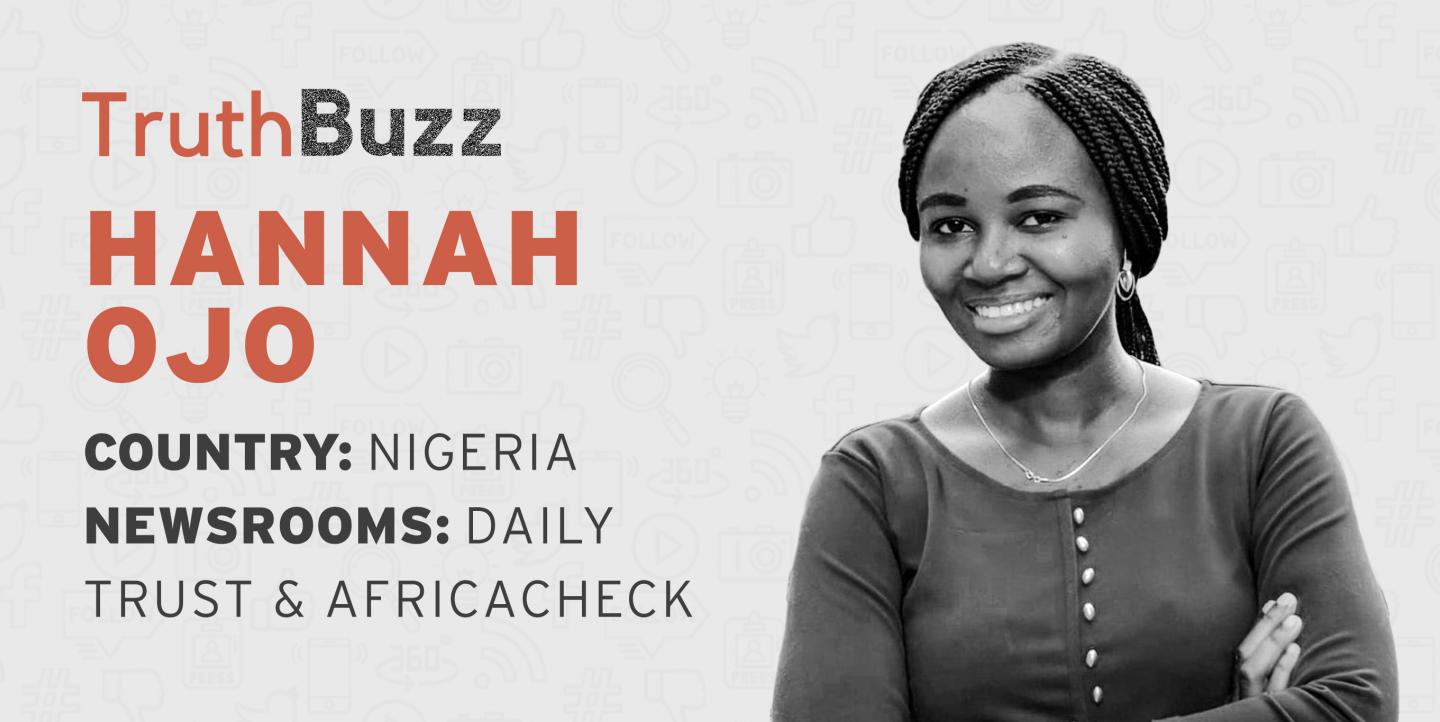In her four years as a journalist, Nigerian journalist Hannah Ojo has won numerous awards and fellowships and produced award-winning stories, including an investigation into sachet water sold around Lagos that led to the closure of the factories that produce it.
To make the story happen, Ojo received funding from Code for Africa’s (C4A) impactAFRICA, and worked with C4A’s team to include multimedia elements and infographics to enhance the story and make it more shareable. Through this story and others like it, she showed that she can not only lead a team, but also tell stories in innovative ways.
Now, as an International Center for Journalists TruthBuzz Fellow, she’ll put these skills to use in a new role: fighting misinformation and spreading verifications to new audiences. She, like many other journalists, has been thinking a lot about the information crisis and the way it might affect the public’s perception of news and Nigeria’s upcoming elections.
“I think it's a national patriotic thing for me,” she said, “a patriotic sense of trying to fight misinformation in my country.”
According to Ojo, misinformation spreads online through Facebook and WhatsApp. In some instances, people have shared images of places facing crises — under pretext that it’s happening in Nigeria — which has led to violence.
“More people are getting their news from blogs or from closed messaging apps. It's not like the time when your only source of news was from the traditional media,” said Ojo. “Now, the news system is open, which is leading to an information overload. People go with what appeals to their emotion — even if it is not credible — and they will share it.”
Ojo wants reporters in Nigeria to focus on the spread of misinformation in the digital space. Not only do journalists need to be trained to produce fact-checks; they need to be trained on the best way to present them. She cautions against publishing verifications in print or other traditional forms, since the digital space is a better medium for sharing verifications — and most readers are online anyway.
For her fellowship, she’s been working with AfricaCheck, an online-only fact-checking organization, and the Daily Trust, a hybrid newsroom, to amplify their verification work. They’ve been using infographics, data visualizations and social media visuals to share the reports.
“The reality is, in the Nigerian media system, it is hard to sell news if it is not bleeding,” said Ojo. “If it is not sensational, if it is not about sex, it is hard to sell it. But one thing I've noticed is that if you present a piece of information in a way that is unique, in a way that is attractive, you get a lot of people plugged in.”
Based on her preliminary work as a TruthBuzz Fellow, as well as previous experiences, she’s noticed that using innovative methods to share information really works.
One of the main challenges is “getting journalists to key into something new,” said Ojo. Many journalists are stuck in traditional ways of doing things, but Ojo hopes her commitment to fighting misinformation and producing innovative fact-checks will help shift the focus of media partners who are not focused on this challenge.
Ojo also thinks that media literacy and greater involvement from tech giants like Facebook will be a critical part of fighting misinformation in the future.
Her top priority in the coming months, will be focusing on verifying election information. “Checking [false claims], debunking them and putting them out. That is very important,” said Ojo. “If people don’t have credible information, they won’t be able to make a wise decision regarding who they should vote for.”
Learn more about Ojo and the Truthbuzz Fellowship on ICFJ's website. You can also follow her work — and the work of other fellows around the world — on Twitter using the tag #Truthbuzz.


